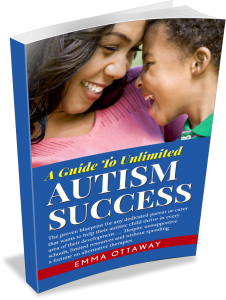“If you’re hungry, you’ll eat it.”
Have you ever heard a parent or carer say this to their child?
Maybe, someone said to you when you were a child?
Or are you a parent or carer who says this to your own children?
It’s something I see heaps of families say to their children. It usually happens when their child is hungry and begging for biscuits or crisps as a snack. The parent or carer will shake their head and say something like…
“No, but you can have some fruit.”
Often the child shows a look of disappointment then eventually decides whether it’s worth eating the fruit they’ve been offered or not…
Meanwhile, if the parent or carer sticks to their guns, they’ll look at their child and say…
“If you’re really hungry, you’ll eat it.”
Sound familiar?
A while back I was working with a little girl called Tara, and a similar situation happened.
Tara asked her Mum for a snack.
She was offered some grapes.
In seconds Tara replied “No grapes.”
Her Mum looked around the kitchen for something else to offer Tara. Then said, “Well, that’s all I can offer you…”
Tara’s Mum then turned to me and said…
“I’ll keep the grapes on the table, if she’s really hungry, she’ll eat them.”
Did Tara eat the grapes?… Nope, not a single one.
Slowly but surely her energy and behaviour deteriorated.
I did all the things I’d usually do to ‘bring her back’, but nothing was working…
(Yes, I have those days too)
After almost an hour of disengagement, refusal, mute and flopping behaviour… I finally asked Tara… “What shall we do?”
To which she answered “Eating bread.”
Moral of the story…
We can’t assume the same things for typically developing children and autistic children.
Tara could not cope with the whole snack situation, and that could have been for a whole load of reasons…
She may have been frustrated that she couldn’t express herself.
She may not have been able to find the language to explain what she wanted.
She may have been overwhelmed by hunger and unable to focus on anything else.
Or it might have been all these things.
If you’re a parent or carer of a child with autism and you want to avoid your child going into meltdown, something I’d encourage you to practice doing is ‘checking in’ with your child.
What I mean by that is, if your child has refused to use the toilet or to have a drink of water/ eat a snack, don’t necessarily take this for fact.
Check with them again a little later, this time word it slightly different. For example…
“I’m thirsty; I’m going to get a drink, do you want one too?”
Changing up your language with autistic children can be a simple way of gaining their attention and encouraging them to answer you.
For more tips and advice on how to help encourage communication and help your child express their needs to you clearer join the ‘Unlimited Autism Success Inner Circle’…
Click here to join and for more information
Speak with you soon until then,
Live every moment, Love beyond words and make a difference today
Emma Ottaway
The Ambitious Autism Ambassador

